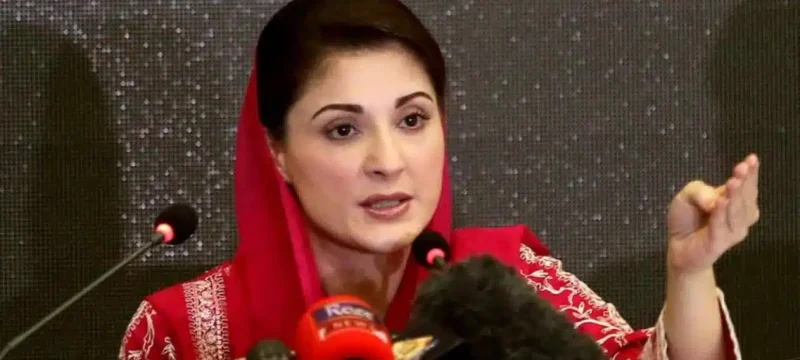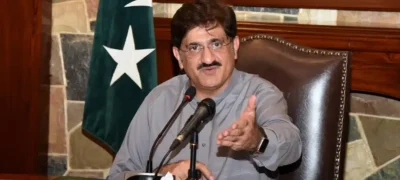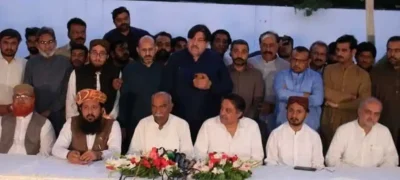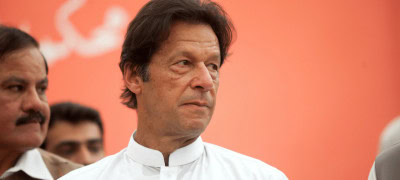Maryam Nawaz, the Senior Vice President and chief organiser of the Pakistan Muslim League-Nawaz (PML-N), has made history by being elected as the first woman Chief Minister of Punjab. This marks a significant milestone as she becomes the first woman to hold such a position in any of the provinces in the country.
The session of the Punjab Assembly to elect the new leader of the House commenced with Speaker Malik Ahmed Khan presiding over the proceedings. Maryam secured a substantial victory with 220 votes, as opposition parties, led by the Sunni Ittehad Council, boycotted the proceedings, leaving her competitor, Rana Aftab Ahmed Khan of the SIC, without a single vote.
Also Read: Murad Ali Shah Poised for Another Term as Sindh Chief Minister
Upon the speaker’s request, Maryam assumed the seat of the leader of the House, with a photograph of her late mother, Kulsoom Nawaz, placed prominently at the front of the desk.
The competition for the position of Chief Minister featured Maryam Nawaz representing the PML-N and Rana Aftab Ahmed Khan representing the Sunni Ittehad Council, setting the stage for a highly contested battle.
With a majority of 186 votes required for election as Chief Minister, the PML-N, with the support of 224 members out of a total of 327 in the house, held a comfortable position.
At the start of the session, two newly elected members of the House, Khizar Mazar and Hafiz Tahir Qaiser, were administered the oath. Subsequently, the assembly secretary explained the voting procedure for electing the new leader of the House.
However, when Rana Aftab Ahmed Khan attempted to address the House, he was halted by the speaker, who clarified that no member could speak on a point of order during a session convened solely to elect the leader of the House. This led to the entire opposition boycotting the session.
Following this, Speaker Khan ordered a brief pause in the proceedings before commencing the election process. Outside the assembly, Rana Aftab expressed discontent, alleging dictatorial practices and emphasizing the importance of popular support.
Maryam Nawaz, in a brief address, urged the opposition members to return and participate in the session, highlighting the importance of democratic principles and the role of constructive opposition.
In an attempt to reconcile, a committee was formed by the speaker, consisting of Khawaja Imran Nazir, Sohail Shaukat Butt, and Khawaja Salman Rafique, to persuade the opposition members to return.
However, despite these efforts, 18 opposition members left the House again when their request to speak was denied.
As a result, the speaker ordered the assembly doors to be shut and proceeded with the voting process for the election of the Chief Minister.









